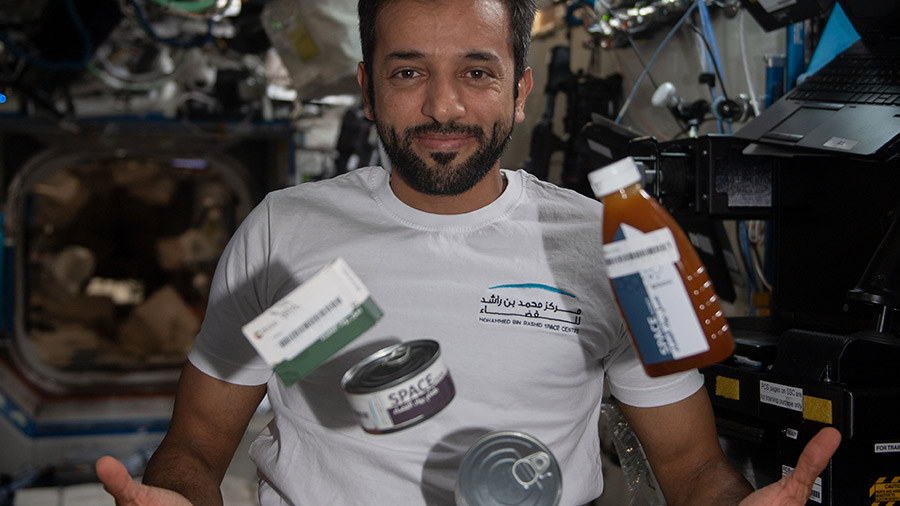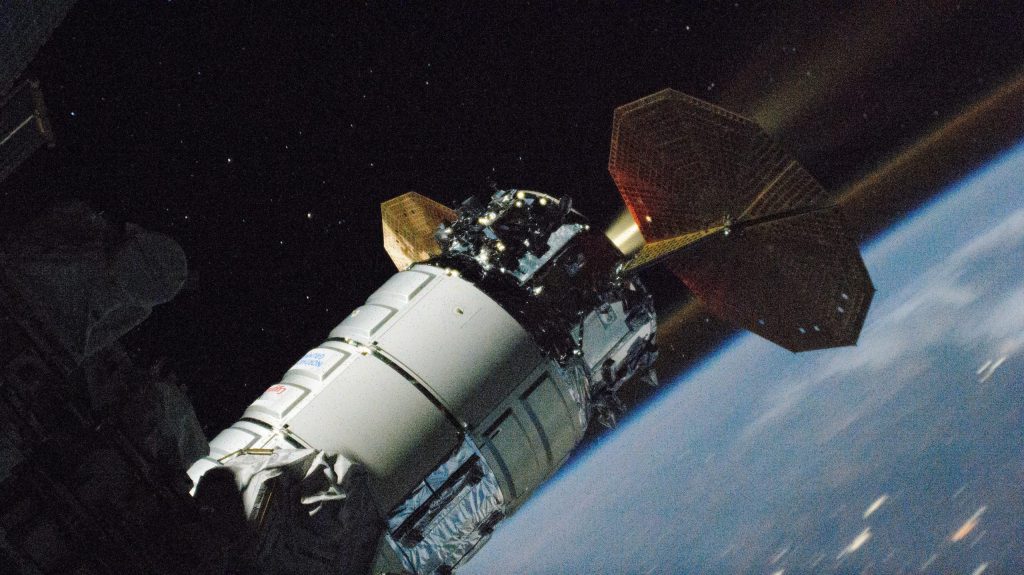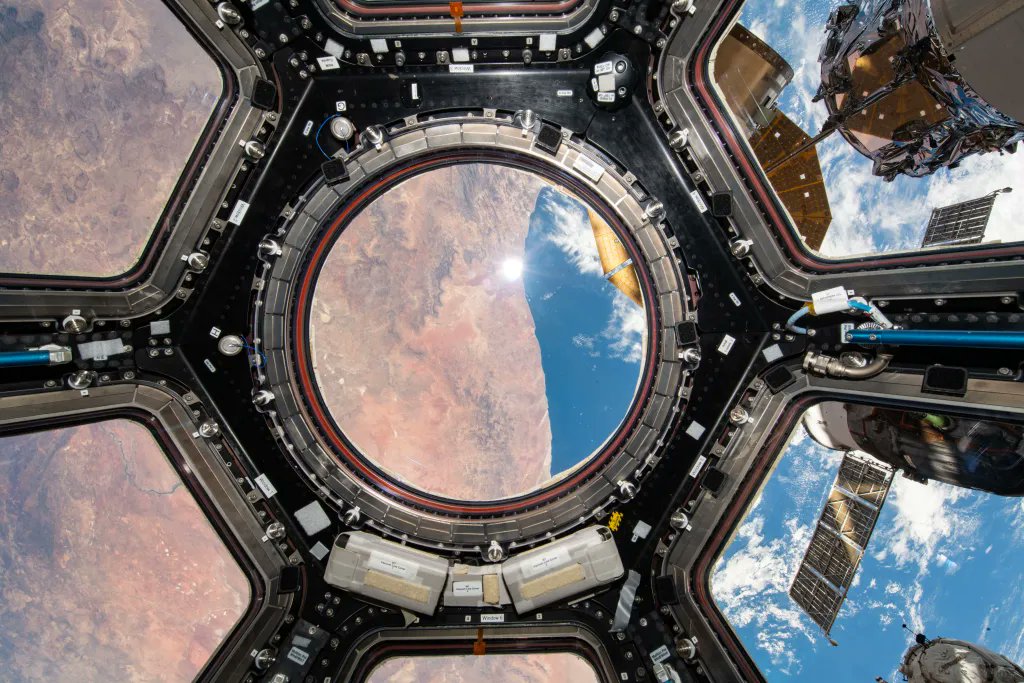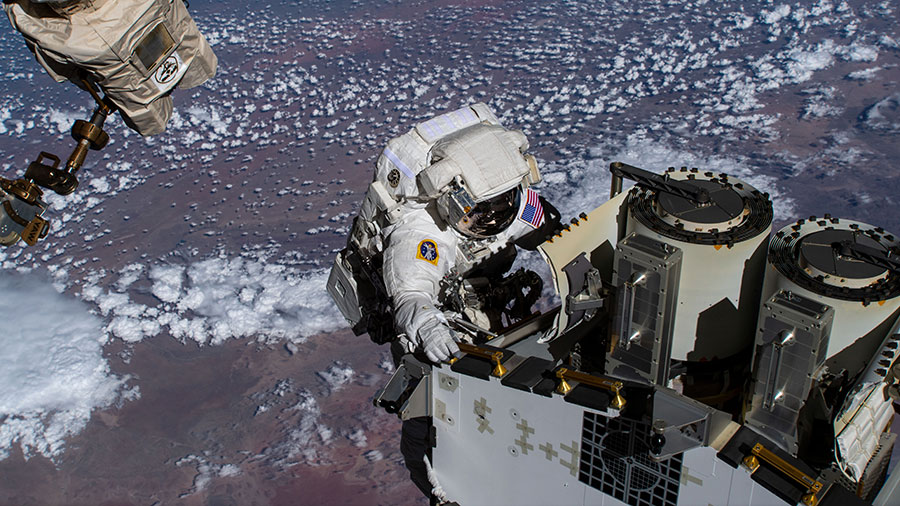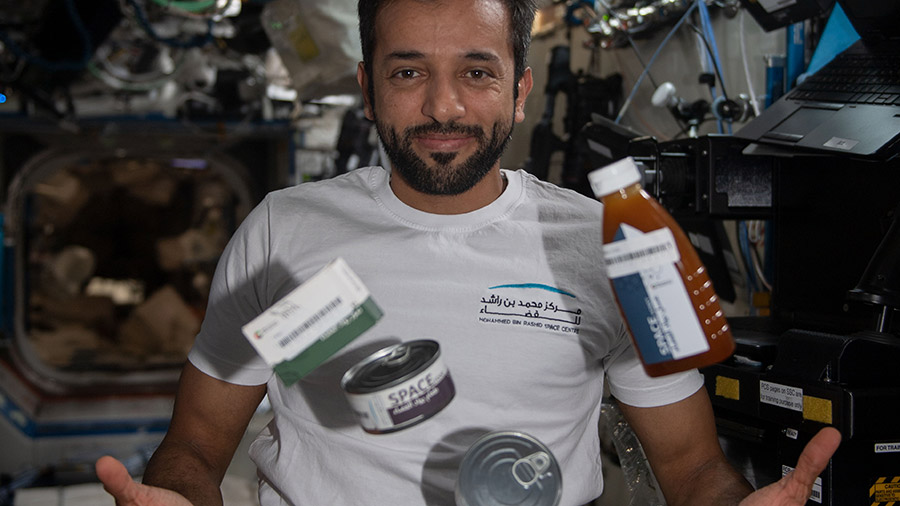
Heart research and space physics topped the microgravity research schedule aboard the International Space Station on Friday. The Expedition 69 crew also continues packing a U.S. cargo craft while gearing up for a series of upcoming spacewalks.
A variety of research into microgravity’s affect on the human heart has been ongoing aboard the orbital outpost for several years. The most recent investigation is observing how gravitational forces affect cardiac muscle cells and tissues. NASA Flight Engineer Woody Hoburg set up the Life Sciences Glovebox in the Kibo laboratory module on Friday and serviced tissue samples for the Engineered Heart Tissues-2 space biology study. The experiment is testing new, innovative therapies to counteract heart symptoms in space, as well as prevent cardiac disorders on Earth.
NASA Flight Engineer Frank Rubio collected and stowed microbe samples in a science freezer for the BioFilms investigation. The samples will be analyzed back on Earth helping engineers develop antimicrobial surfaces to protect astronauts and space hardware. Rubio also continued a study Hoburg and NASA Flight Engineer Stephen Bowen worked on all week to understand how the human body adapts to weightlessness. He wrapped up his day loading the SpaceX Dragon cargo craft with finalized space experiments and used station hardware for return to Earth later this month.
Bowen joined UAE (United Arab Emirates) astronaut Sultan Alneyadi and retrieved physics research hardware from inside Kibo’s airlock. The space physics gear, containing a variety of materials, had been placed outside the station and exposed to the harsh vacuum of space. MISSE, or Materials International Space Station Experiment, enables government and private sectors to study how extreme temperatures, radiation, and micrometeoroids affect materials, coatings, and components. Results may improve the design of space hardware promoting long-term mission success.
Two cosmonauts are preparing for a series of spacewalks set to begin at the end of April for logistics work on the Roscosmos side of the space station. Commander Sergey Prokopyev and Flight Engineer Dmitri Petelin reviewed on Friday the procedures for the upcoming spacewalks that will see them move a radiator and an experiment airlock from the Rassvet module to Nauka multipurpose laboratory module. The duo was joined by Flight Engineer Andrey Fedyaev who will assist the spacewalkers in and out of their Orlan spacesuits and monitor the spacewalking activities.

